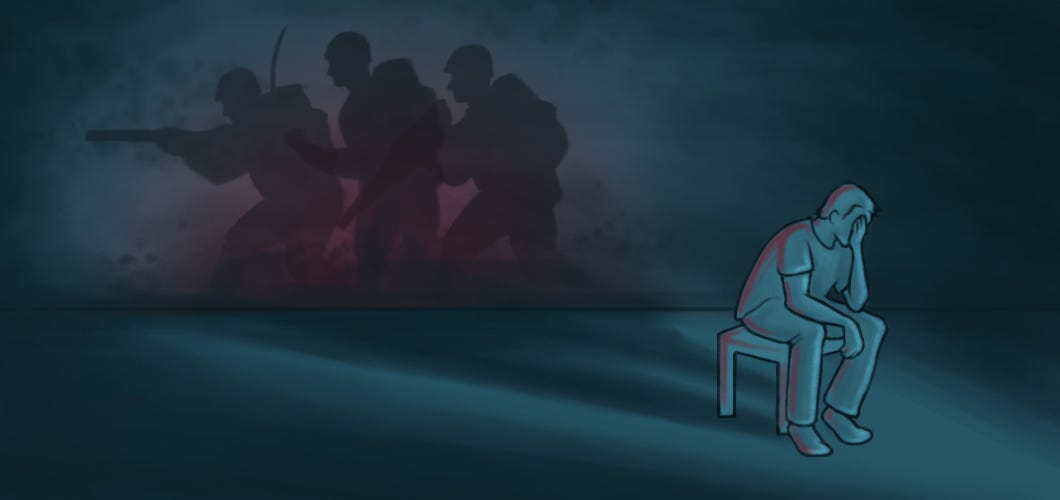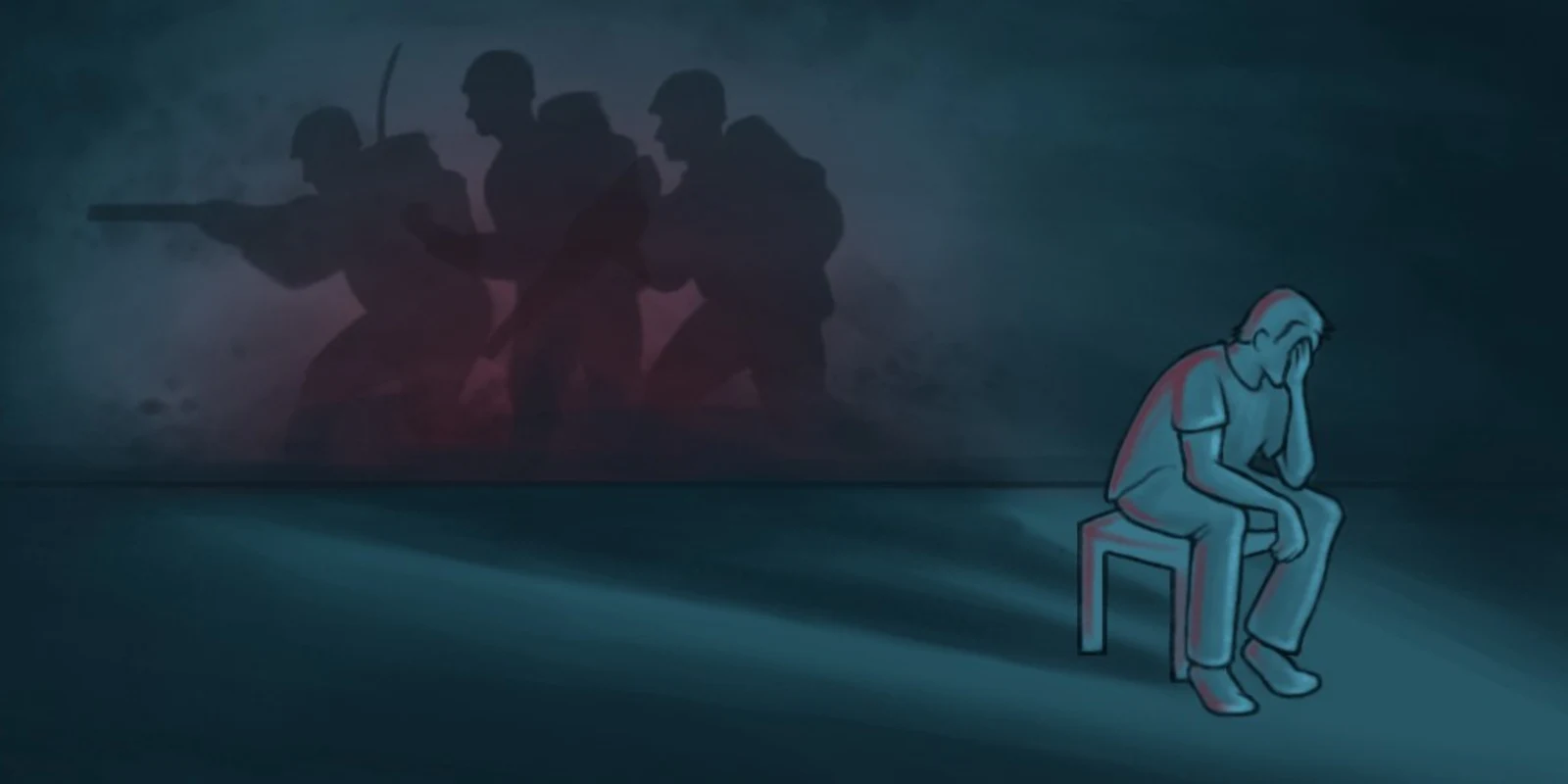
When I walked into the hospital room with my team to meet him for the first time, what struck me was how young he looked. He was listed as 26 years old, but he looked younger than that. He looked so young that it was hard to believe he had served a tour in Iraq a few years prior, or that he likely saw things there that no one would want to see. We didn’t know much about what he did in Iraq, partly due to privacy rules, but also because he didn’t want to tell us. With his lack of eye contact, I imagined he saw things in combat that still affected him at that moment.
He was back in the hospital dealing with an infection in his blood which required treatment with intravenous antibiotics. The problem was that, when hospitalized in the past with a similar infection, he had been known to leave the hospital prior to finishing his antibiotics. It got to the point where we were trying to figure out an effective oral antibiotic regimen in the event he left again — and also to give him the understanding that oral treatment would not be as good as intravenous antibiotics. Our concern was that, without adequate therapy, the infection could quickly become life-threatening. Knowing his tendency to leave in the past, we did all we could to convince him to stay.
In the midst of all this, there was always the question of whether his prior military experience may have had something to do with his behavioral pattern, leading to him leave against medical advice. The challenge that presented itself, however, was whether to ask him more about his military history, particularly about any traumatic experiences he may have had. While asking him could give us a better glimpse into his history in Iraq, we were also aware of the potential discomfort it could cause and potentially impede our ability to care for him adequately. We didn’t know how he would react, and we ultimately decided not to probe deeper into his past. As his admission continued, this question would play in our minds repeatedly, but ultimately our approach stayed the same.
This situation revealed to me that caring for our veterans, particularly for those who have recently come back from combat situations, can be a challenging task. Recent survey research from the Kaiser Family Foundation showed that veterans have unique medical and social challenges after returning from combat, which can impact how they use medical care and how they are treated by healthcare providers. In this particular survey of veterans who returned after serving in Iraq and Afghanistan, the majority of veterans felt that the average American did not understand their experience and that they felt disconnected from civilian life. Fifty-six percent of veterans who were involved in armed combat felt that their physical health was worse after the war, and 39% of veterans in the same group reported worse mental and emotional health after returning.
Other research (1, 2, 3) demonstrates that veterans returning from war are vulnerable to medical conditions such as PTSD, depression, substance-use disorders, traumatic brain injury, and musculoskeletal injuries. Diagnosing and treating these conditions can be challenging if and when a veteran chooses to or is forced to delay medical care. Recently, mental health providers have focused on the underlying mental health disorders caused by combat that potentially lead to behavioral changes, which in turn impact the care of other medical conditions and can lead to decreased continuity of care if veterans seek care in different facilities. In the midst of — and despite — this effort, there remains a stigma in mental health that could cause veterans to avoid mental health facilities and care altogether. Because veterans may not always go with the VA health system, everyone in healthcare should be sensitive to the medical circumstances and challenges surrounding this particular population.
Going back to the patient I was talking about earlier. While he was in the hospital, we continued to treat his bacteremia with IV antibiotics. Every day that we checked on him, he seemed to understand the importance of staying in the hospital for adequate treatment of the bacteria in his blood. Then, one day, we got word from a nurse that he was missing from his room. Despite an extended search, we were unable to find him. It was likely that he left the hospital again, against medical advice and without antibiotics. We could only hope that his infection would not progress while he was away from the hospital.
To this day, I wondered if he had an underlying mental health disorder caused by combat that went undiagnosed and may have affected his understanding of how sick he was or how important the medicine he received was to his recovery. Perhaps it is a lesson to us not to be afraid to truly ask veterans about their experience, even the uncomfortable parts, since a piece of information they provide may be vital for providing the best possible care. Veterans deserve our full respect for the sacrifices they made to ensure us a safe and brighter future. We should give them our full attention, too.

Dr. Madubata is a cardiologist who is interested in medical writing. His articles have been published on medical sites like KevinMD and MedPage Today. He is also a 2017–2018 Doximity Fellow.




